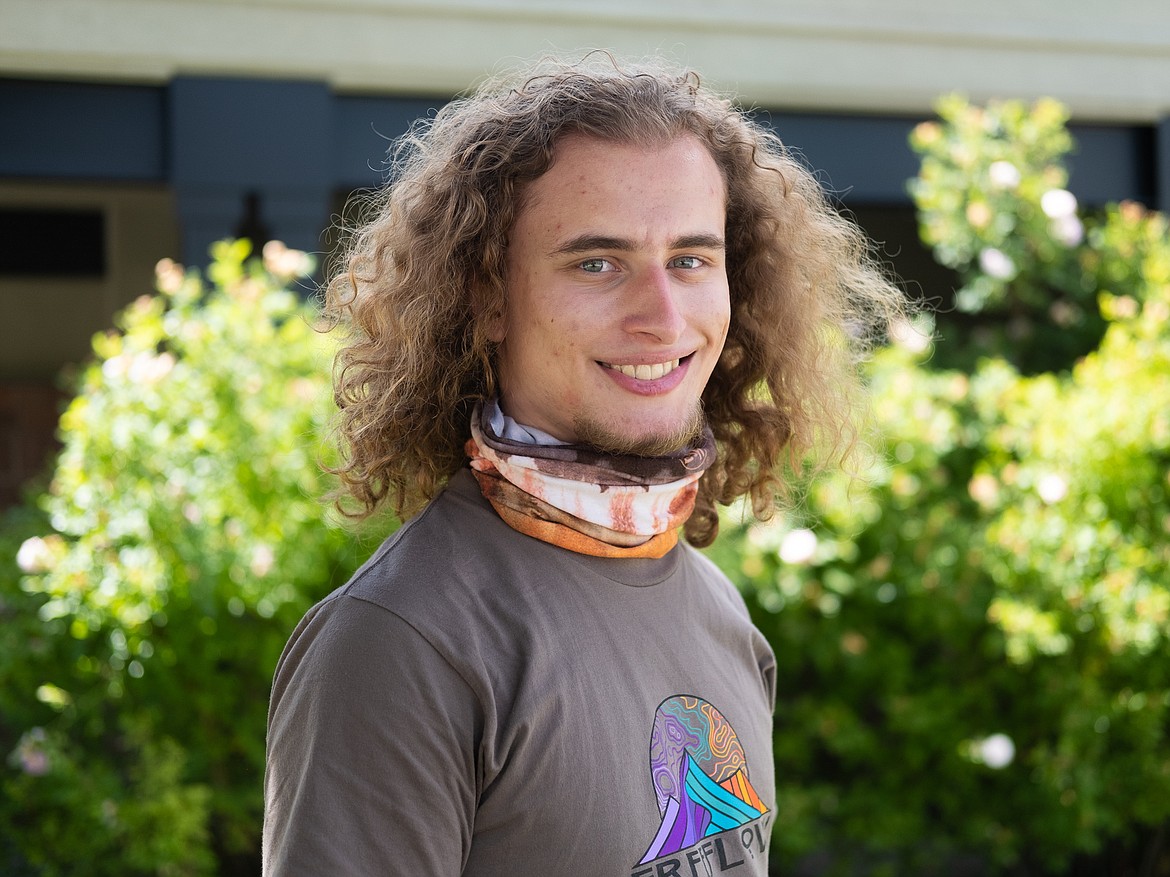Whitefish High senior gets an early start on activism
While political activism can be intimidating for anyone at any age, Luca Welle doesn’t feel the pressure.
Welle, a senior at Whitefish High School this fall, is one of seven on the Flathead Valley’s chapter of the Citizens’ Climate Lobby, a grassroots environmental group that supports volunteers’ efforts to connect with elected officials to influence climate policy.
“We are a group of volunteer citizens concerned about climate change and we want to create climate solutions, and we lobby Congressmen and their representatives and aids to try and further bills and other such action on congressional and local levels,” Welle says. “We want bills that make sense, are bipartisan and are beneficial to everyone.”
Welle and the rest of his chapter recently sat down with Tripp McKerney, a representative for Montana Republican Congressman Greg Gianforte, to discuss supporting bills like the Energy Innovation and Carbon Dividend Act and the Growing Climate Solutions Act.
While the meetings are short, Welle says he’s just happy to get some exposure and get in front of someone who has the time to read the bills and review information.
“We only had a half hour because they have busy schedules, but it was still productive. It was cool to get to know him a bit and start a relationship, because we’re going to have future meetings with him where we’ll get to know more of his concerns and explain more about the bills we would like to see passed to help save our climate’s future,” Welle says. “Meeting with the representatives is just as good [as meeting with the Congressman] in a way, because they’re able to pass that information along and they’re able to take more time to look at the bill and consider it, whereas the Congressman themselves might not have the time to directly do that.”
The Energy Innovation act in particular is of interest to Welle. The bill, introduced in the House of Representatives in January 2019, would impose a fee on the carbon content of fuels like crude oil, natural gas and coal, which would be collected and deposited into a Carbon Dividend Trust Fund that would be used for administrative expenses and dividend payments to U.S. residents.
The hard part with bills like it, Welle says, is showing people where they directly benefit.
“The fees placed on fossil fuels will actually give 80% of Americans more money than they will have to pay due to increased prices from fees. It doesn’t hurt most Americans, it actually helps them,” he says.
Welle has been part of the local Citizens’ Climate Lobby chapter since joining a training meeting in February 2019.
Being the only student in a group of adults isn’t at all a bad thing, he says, and can actually seem to help strengthen the message he’s sharing.
“I’ve been around adults a lot, so it wasn’t super intimidating, but it was a little different. What’s interesting to me is how people have been almost praising me for being young and knowledgeable and active,” he says, noting the messages about climate change and environmental change can land differently when they’re coming from someone still in their teens.
At WHS, Welle has been involved with FREEFLOW (Flathead River Educational Effort for Focused Learning in Our Watershed), a field science high school club that centers around water quality and natural resource issues that affect the environment.
He says while his interest in the environment exists outside the classroom, his mentors at WHS, like teachers Eric Sawtelle, Kyle Fedderly and Nikki Reed, have been a help in pushing him in the right direction.
”We’ve done a lot of stuff with the environment, both directly like collecting data and helping to restore Cow Creek, and the policy side, meeting with businessmen and city officials to try and help get things done,” he says.
It’s still early to be thinking about his college and career paths, but Welle says he’d like to explore both the science and business sides of environmental change.
“I haven’t totally set my plans for college and such, but I definitely want to set my focus on environmental science and ecology and those studies, but also the policy and political science side of things,” he says. “Really, the two are interconnected, and it’s really important to have both sides. Government policy influences how corporations, the government itself and people are able to treat the environment, and believe it or not, the science and data we gather can actually influence people.”
For more information on Citizens’ Climate Lobby, visit citizensclimatelobby.org.


